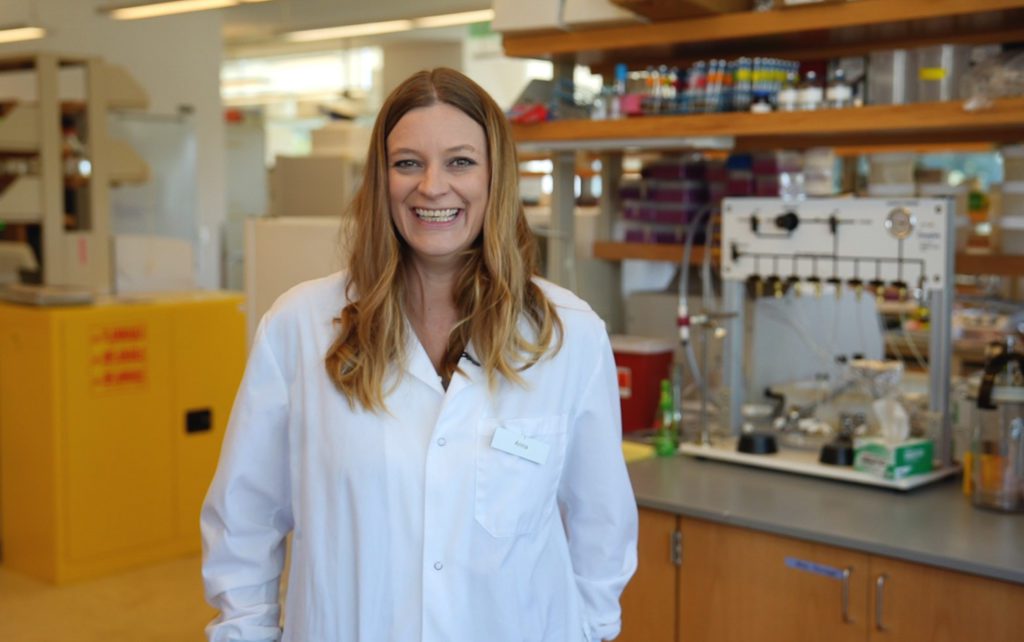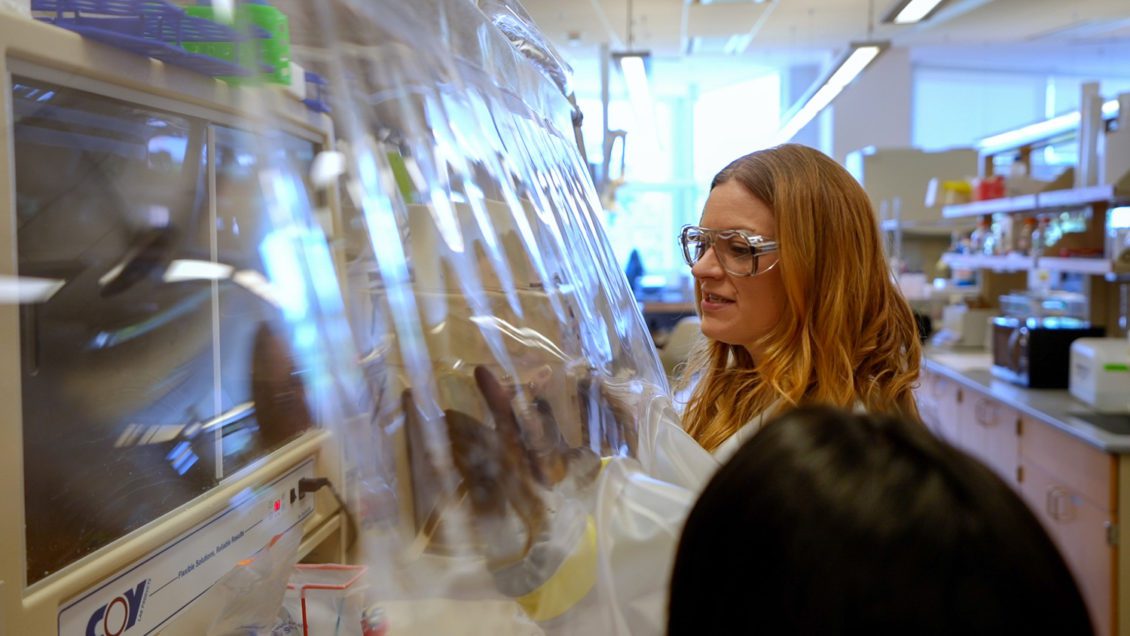Meet Anna Seekatz. She is an assistant professor in the Department of Biological Sciences who researches gut microbiota. Seekatz joined the Clemson faculty in 2019 after she did a postdoctoral fellowship at the University of Michigan. She earned her Ph.D. from the University of Maryland School of Medicine. We caught up with Seekatz and asked her about research, Clemson and her life outside of work.
Q: What is your research interest?
A: Our research focus is the gut microbiota, which are the microbes living in your gastrointestinal tract. These microbes outnumber your own body’s cells and provide essential functions that we need to survive. Our lab is interested in how “good” bacteria inhibit bacterial pathogens. We are currently working on identifying functions provided by these “good” bacteria that combat the health care-associated pathogen, Clostridioides (Clostridium) difficile. We are also interested in identifying interactions between some of these “good” bacteria that maintain health, which we know little about. We hope that our research can advance how we manipulate the microbiota for human health and disease prevention.
Q: What is the coolest thing about your work?
A:Being able to ask (and answer!) new questions about biology. We get to put curiosity into action. Even though there are many labs working on the gut microbiome, at some point you will be the only person who is making a particular observation or knows an answer to a question. I especially like unexpected results because it leads to new questions and could potentially lead to new discoveries.
Q: Why did you become a scientist?
A: Being a scientist satisfies my lifelong curiosity of how things work. I did not know what the path to being a scientist was growing up, but I was always curious. This led me to studying biology in college. Fortunately, I had great mentors who helped me become a scientist.
Q: What drew you to your field in microbiology?
A: Out of all biological systems, I was most fascinated by bacteria and viruses. While I was originally interested in infectious diseases, I was immediately hooked on the gut microbiome when I first learned about it in grad school. The field of the human microbiome was just beginning to grow, and there were so many unanswered questions. We are still trying to answer them.

Q: What would you tell someone just starting out in your field?
A: Don’t be afraid of making mistakes or asking questions. Making mistakes is how you learn. And if you don’t ask questions, people can’t help you.
Q: Why did you decide to come to Clemson?
A: Most of my training was conducted at biomedical institutions without undergraduate students on campus. When I visited Clemson for the first time, I realized how my research could benefit from being in a department with broader biological interests. It is also great to be more involved in undergraduate education. Those interactions have shaped my current research in new directions that I could not have imagined before.
Q: What’s the best advice you’ve ever received?
A: For scientific motivation: “Chance favors the prepared mind.” Paying attention and keeping good records pays off. For personal motivation: “Never compare yourself to others.” You can’t control the work of others or how people think about you, but you can control your own work and have pride in that.
Q: What was your first job ever?
A: I have had many jobs! They have all helped develop my path to being a scientist. My first one was picking up garbage on the side of the road as part of the Ecology Youth Core in Washington state.
Q: What is the top item on your bucket list?
A: I have a list of animals I want to see in the wild. No. 1 are the fairy penguins in New Zealand. Number 2 is a moose.
Q: When you were a kid, what did you want to be when you grew up?
A: I think I wanted to be many things. A lawyer, a detective, a forensic pathologist… anything that involved solving a mystery.
Q: Besides the necessities, what is one thing could you not go a day without?
A: Hot sauce. I put it on everything.
Q: What would you sing at Karaoke Night?
A: I sing karaoke a lot. My go-to songs are George Michael’s “Careless Whisper” and David Bowie’s “Ziggy Stardust.”
The College of Science pursues excellence in scientific discovery, learning, and engagement that is both locally relevant and globally impactful. The life, physical and mathematical sciences converge to tackle some of tomorrow’s scientific challenges, and our faculty are preparing the next generation of leading scientists. The College of Science offers high-impact transformational experiences such as research, internships and study abroad to help prepare our graduates for top industries, graduate programs and health professions. clemson.edu/science
Get in touch and we will connect you with the author or another expert.
Or email us at news@clemson.edu

